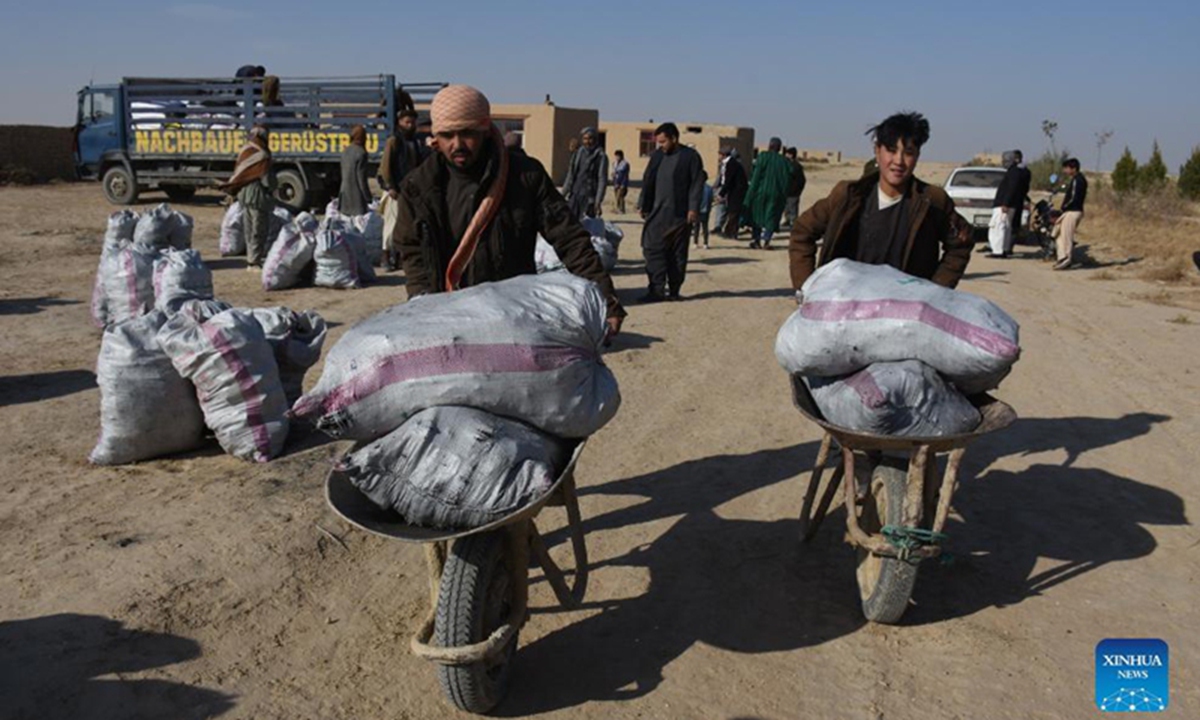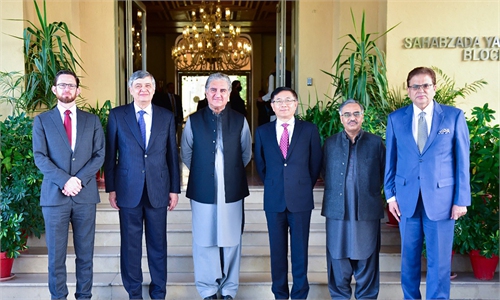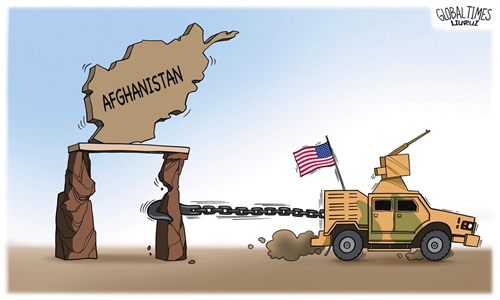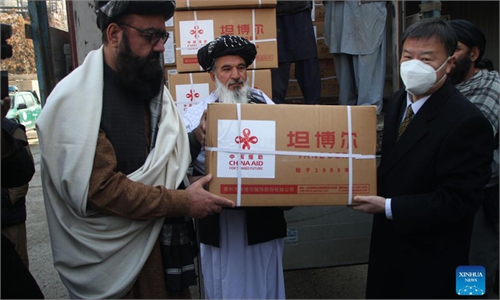
People receive relief assistance donated by a local philanthropist in Nahr Shahi district of Balkh province, Afghanistan, Nov. 21, 2021.Photo:Xinhua
Taliban spokesperson Zabihullah Mujahid on Tuesday announced that the Taliban have resumed work with China on the Aynak Copper Mine project, the world's second-largest copper mine, according to Russian news agency Sputnik.While it remains unclear as to the details of the Aynak copper mine project, it is crystal clear that the Taliban have been looking forward to Chinese investment in helping with the reconstruction of the Afghan economy. To a certain extent, their willingness highlights the seriousness of the economic difficulties and humanitarian crisis in the war-torn country.
Unfortunately, however, some Western media outlets often ignore the pressing humanitarian crisis and instead focus on demonizing China's efforts and accusing China of coveting for Afghanistan's vast mineral wealth under the disguise of wanting to help rebuild the country. And they don't bother to report that the Afghan people have endured decades of war and are facing the devastation of mass starvation amid an economic collapse aggravated by US sanctions.
In fact, there is no denying that Afghanistan's mineral wealth will be vital for its post-war reconstruction, which could be a potential target for Chinese investment. And it is totally justified for Afghanistan and China to develop a bilateral relationship and carry out economic and trade cooperation in accordance with their own national interests.
But it needs to be pointed out that China is more concerned about whether the Taliban can stabilize the domestic situation. Whether Afghanistan can achieve peaceful development is of great significance for its neighboring countries including China, Russia and India.
Chinese Foreign Ministry spokesperson Wang Wenbin said on Tuesday that China is ready to explore cooperation in the economic reconstruction area once the situation in Afghanistan is stabilized and security conditions are ripe.
Resolving the current humanitarian crisis is one of the preconditions for ensuring stability in Afghanistan. The UN spokesman Stephane Dujarric said on Tuesday that the World Food Program found in a recent survey that nearly 98 percent of Afghan people suffered hunger, Sputnik reported. Also, on Tuesday, the United Nations Human Rights Council warned that a severe humanitarian catastrophe is jeopardizing the most fundamental human rights of Afghan people.
Over the past months, China has been providing support to Afghanistan in terms of assisting local livelihood projects, like the drilling of wells, and donating supplies as part of the emergency humanitarian assistance to the war-torn country.
But it should be noted that the US should take responsibility for the reconstruction and humanitarian crisis in Afghanistan given the impact of the decades of war. If anything, the US should first stop aggravating the economic collapse in Afghanistan by lifting its sanctions on the country and returning the frozen funds that belong to the country, allowing the Taliban to use the money to buy much-needed supplies for Afghan people. This is a litmus test of whether the US really cares about human rights or whether it simply wants to achieve geopolitical goals of containing China and Russia. If the US continues all the sanction measures, it would be the most evident gesture of its hypocrisy when it comes to supporting human rights.
There is also a need for countries in the region to explore ways to move beyond the US to either through UN coordination or through regional cooperation in aiding Afghanistan.



